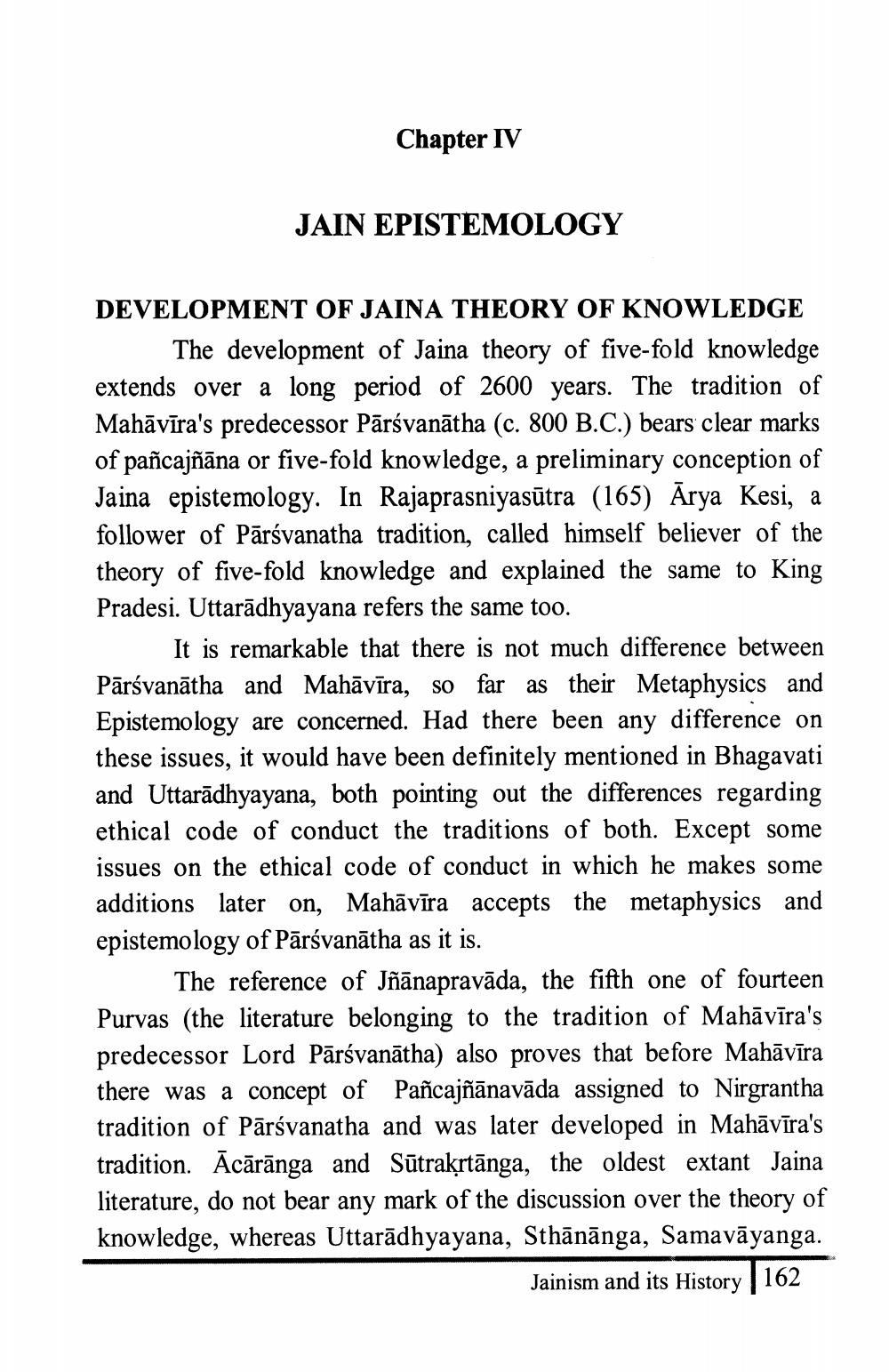________________
Chapter IV
JAIN EPISTEMOLOGY
DEVELOPMENT OF JAINA THEORY OF KNOWLEDGE
The development of Jaina theory of five-fold knowledge extends over a long period of 2600 years. The tradition of Mahāvīra's predecessor Pārsvanātha (c. 800 B.C.) bears clear marks of pañcajñāna or five-fold knowledge, a preliminary conception of Jaina epistemology. In Rajaprasniyasūtra (165) Ārya Kesi, a follower of Pārsvanatha tradition, called himself believer of the theory of five-fold knowledge and explained the same to King Pradesi. Uttarādhyayana refers the same too.
It is remarkable that there is not much difference between Pārsvanātha and Mahāvīra, so far as their Metaphysics and Epistemology are concerned. Had there been any difference on these issues, it would have been definitely mentioned in Bhagavati and Uttarādhyayana, both pointing out the differences regarding ethical code of conduct the traditions of both. Except some issues on the ethical code of conduct in which he makes some additions later on, Mahāvīra accepts the metaphysics and epistemology of Pārsvanātha as it is.
The reference of Jñānapravāda, the fifth one of fourteen Purvas (the literature belonging to the tradition of Mahāvīra's predecessor Lord Pārsvanātha) also proves that before Mahāvīra there was a concept of Pañcajñānavāda assigned to Nirgrantha tradition of Pārsvanatha and was later developed in Mahāvīra's tradition. Ācārānga and Sūtrakrtānga, the oldest extant Jaina literature, do not bear any mark of the discussion over the theory of knowledge, whereas Uttarādhyayana, Sthānānga, Samavāyanga.
Jainism and its History | 162




